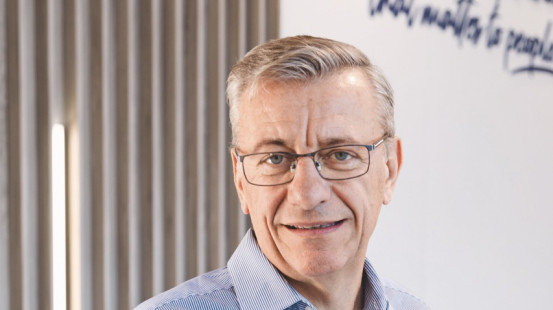Seats for the future: bridging innovation and affordability

For FORVIA, what is the role of affordability in the future of mobility?
More than ever, there’s a real need for technologies to do more than push the boundaries of possibility for mobility. Solutions for next-generation vehicles must be cost-effective, as much for our partners as for our end customers. At FORVIA, we’re leveraging our expertise to respond to this challenge. This means taking an entirely new approach to the way we design and manufacture technology, rethinking innovation and production to also consider affordability and accessibility. A great example of our differentiating approach in action is happening in Seating, with our disruptive modular architecture.
Tell us more about how rethinking seats can transform the industry and improve affordability.
Our modular seat architecture is designed with a focus on limited modules, integrating comfort and safety functions. This approach transforms our challenging seat manufacturing process into an easy assembly process, leading to a more than 50% reduction in manufacturing and assembly time in our just-in-time plants. There is no variability linked to seat content or difficult operation, resulting in a less costly process. Modules can be mass produced in regional hubs before commissioning complete seats close to, or even within, our customers’ assembly plants.
Significant cost reductions can be achieved in development and design, as a wide range of modules can be plugged into the same platform, serving multiple vehicle models.
This architecture has also been designed following circular economy principles to minimize the use of materials, facilitating the incorporation of recycled and recyclable materials. The comfort module functions can be easily dismantled (in less than 5 minutes), enabling updates, upgrades, refurbishments or repairs to seats at any time. This contributes to an extended lifespan of the car, reduces cost impact, and increases affordability for the end consumer.
How has FORVIA’s focus on affordable solutions led to strategic partnerships?
Our partnerships enable us to strengthen our innovative solutions. A key challenge for the “Seat for the planet” project was how to replace polyurethane, a polymer found in comfort parts such as foam. Through our partnership with Indorama Ventures, we developed Auraloop, a 100% recyclable solution that offers a twofold carbon footprint reduction compared to current materials. It’s thanks to these projects that our innovations remain affordable, bringing us toward a more circular economy.


